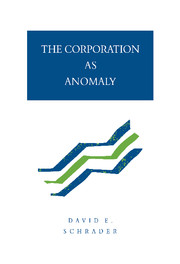Book contents
- Frontmatter
- Contents
- Preface
- Introduction
- 1 The hidden change in economic theory
- 2 Four views of scientific change
- 3 A glance at the history of economic theory
- 4 Agreement and disagreement within the tradition
- 5 Theories of the firm
- 6 Confusions and problems with the marginalist view
- 7 The shape of the large managerial corporation
- 8 The theoretical impact of a better theory of the firm
- Notes
- Bibliography
- Index
3 - A glance at the history of economic theory
Published online by Cambridge University Press: 10 December 2009
- Frontmatter
- Contents
- Preface
- Introduction
- 1 The hidden change in economic theory
- 2 Four views of scientific change
- 3 A glance at the history of economic theory
- 4 Agreement and disagreement within the tradition
- 5 Theories of the firm
- 6 Confusions and problems with the marginalist view
- 7 The shape of the large managerial corporation
- 8 The theoretical impact of a better theory of the firm
- Notes
- Bibliography
- Index
Summary
When one looks at what economists and historians of economics have had to say about the history of economics it becomes increasingly clear why the Kuhnian language of paradigm and revolution is ill suited to shed much light on the history of economics. It is not clear, speaking in that terminology, whether economics has never had a revolution or whether it has been in a constant state of revolutionary warfare. As I noted at the outset of Chapter 1, A. W. Coats and Donald F. Gordon have claimed that there has never been a significant revolution in economics. By contrast, just a very cursory review of literature written by authors who like to use the revolutionary terminology reveals at least seven revolutions and a major counterrevolution. Among those economic theorists who are sometimes called the fathers or mothers of revolutions are the following: Adam Smith, David Ricardo (sometimes along with James Mill), John Stuart Mill, Stanley Jevons (usually along with Leon Walras and Karl Menger as joint fathers of the “marginal” or “marginalist revolution”), Alfred Marshall, John Maynard Keynes, and Edward Chamberlin and Joan Robinson (joint parents of the “monopolistic competition” or “imperfect competition revolution”). At the same time, A. C. Pigou, Frank Knight, and (most recently) Milton Friedman are frequently seen as leaders of a significant counterrevolution. There is, I think, more than a touch of irony in the fact that this list of “revolutionaries” does not include Karl Marx. It also leaves out Thorstein Veblen, John Commons, and Wesley Mitchell.
- Type
- Chapter
- Information
- The Corporation as Anomaly , pp. 45 - 73Publisher: Cambridge University PressPrint publication year: 1993



